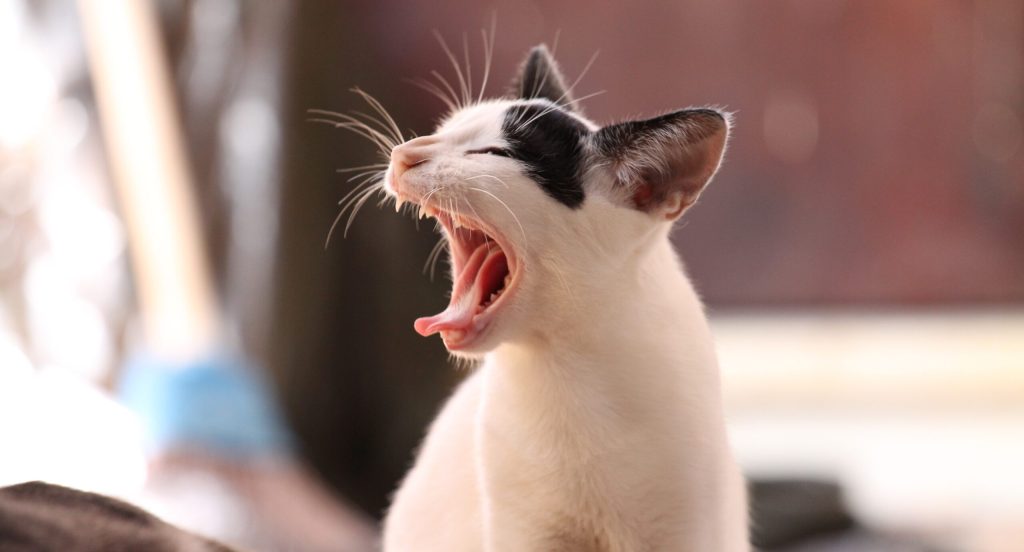Trivia: Why do we yawn?
Answer: Because of fatigue, shortness of breath, or boredom.


Yawning is very interesting. It has many possible causes and several different theories on how it came about for humans, but none are definite. The definition of yawning varies across cultures. Only 7% of the world’s languages have a word that precisely describes this act, including Arabic (sadafa), Bengali (choyna), Farsi (goftoguygir), Russian (zadet’), Italian (gioia), and Spanish (“abejorro“). “It is a fact that the yawn has been described in very few languages.”
In English, yawning can be defined as an involuntary action that opens their mouth widely, inhales, and exhales. It’s often done while keeping the eyes closed or covering one’s mouth with their hand; this makes it more socially acceptable for some people. Yawning occurs when blood levels of carbon dioxide (CO) rise.
This action may serve to provide more oxygen or remove excess carbon dioxide from the body by forcing air into the lungs. It’s also thought that “the yawn reflex may be triggered by a lack of oxygen to the brain, mental or physical fatigue, boredom, stress or sleepiness.”
Humans are not the only ones to yawn. Many animals have been observed yawning, too. Yawns have even been seen in rats, turtles, primates, birds; they can also come in many forms. For example, chimpanzees yawn with their mouths open, whereas bats do it through their nostrils due to the lack of lips.
Many people believe that yawning is seen as rude worldwide, and some believe that the person who is doing the yawning doesn’t know any better. This is untrue because in most cultures, yawning is seen as normal and not rude.
Yawns are often associated with tiredness or boredom; however, there’s no definite reason why we do it. There are three possible explanations of the function of yawning: brain cooling, arousal state regulation (i.e., for boredom or wakefulness), and oxygen exchange. These three hypotheses are not mutually exclusive.


